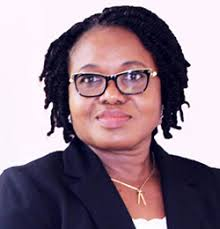 Professor Margaret Gyapong is an Applied Medical Anthropologist with a keen interest in research impact and has been a leader in this area bringing research results to the doorstep of policy makers and program implementers. As Deputy Director for Research and Development in the Ghana Health service She worked for several years at the intersection between health
Professor Margaret Gyapong is an Applied Medical Anthropologist with a keen interest in research impact and has been a leader in this area bringing research results to the doorstep of policy makers and program implementers. As Deputy Director for Research and Development in the Ghana Health service She worked for several years at the intersection between health
research and practice building research capacity at both national and international levels. Her research interests are in health systems, Implementation research, demographic surveillance systems and socio-cultural aspects of Malaria and Neglected tropical diseases. Professor Gyapong’s groundbreaking work in this field has driven much of our understanding on the effects of NTDs on individuals, households and the society. In January 2017, she was one of twelve women honoured by women in global health during the World Health Assembly to receive the first ever Heroines of Health award for her work drawing attention to the needs of women suffering from the consequences of Neglected Tropical Diseases. In recent years, she has been at the forefront of championing the cause of Female Genital Schistosomiasis as a Neglected Tropical Disease.
Having worked in the Ghana Health Service for many years, she joined the University of Health and Allied Sciences in Ho, Ghana in 2017 where she is currently the Director of the Institute for Health Research and coordinates activities of the centre for health policy and implementation Research. She is the focal point for Implementation Research Capacity building for the WHO/UNDP/PATH Access and Delivery partnership. In 2018, under her leadership, the Centre for health policy and implementation research was designated as a satellite African Training Centre for Implementation research by WHO/TDR.
Professor Gyapong has authored over 120 peer reviewed articles and book chapters, and is also the lead author on 2 chapters in the WHO/TDR Implementation Research toolkit.
Professor Gyapong demonstrates international leadership through service on several task forces, steering committees and working groups for the World Health Organization (Geneva), the Task Force for Global Health (Atlanta), the Standing Committee of the National Institute of Health (Washington DC) to mention a few
